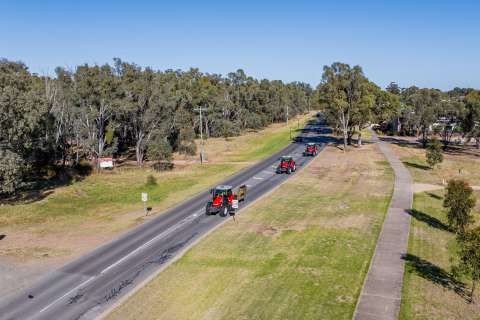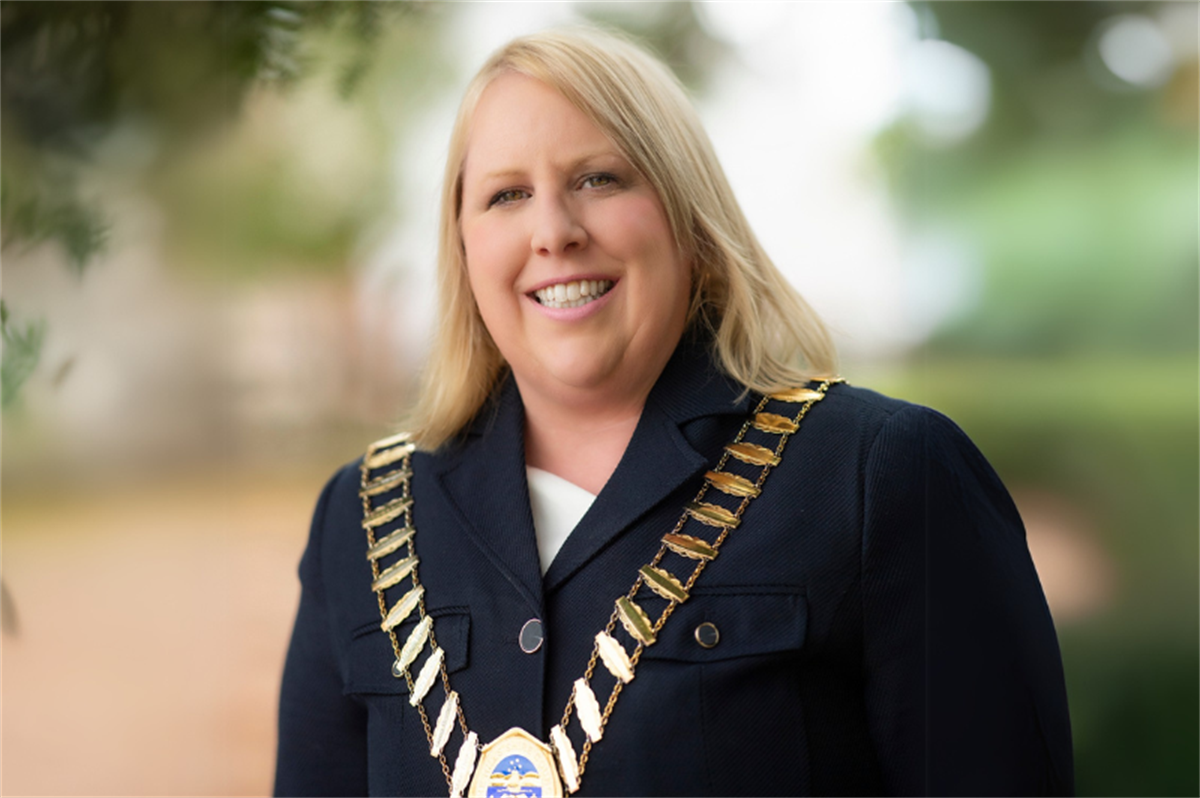
This is a joint media release between the Australian Federal Police, Australian Taxation Office and Australian Securities and Investments Commission.
A joint-agency investigation into an elaborate $17 million fraud has resulted in charges against 12 people across the east coast of Australia – including people who have been of long-term interest to transnational and serious organised crime investigators.
Australian Federal Police (AFP) investigators yesterday executed search warrants at 10 locations across Sydney, nine in south-east Queensland and two in the ACT in a coordinated strike against a transnational and serious organised criminal syndicate using labour hire and payroll companies associated with the building and construction industry to defraud the Commonwealth.
The investigation into this syndicate began in December 2018, as a result of AFP investigators following up intelligence identified through a number of other organised crime investigations. The principals of this syndicate were identified and an innovative whole-of-government approach to the investigation was established. The AFP engaged its partners through the Serious Financial Crime Taskforce to target this conspiracy to siphon off money that should have been remitted to the Australian Taxation Office (ATO).
The total value of the fraud has been calculated at more than $17 million since July 2018. These funds eventually made it into bank accounts controlled by syndicate members and their associates.
A 49-year-old man alleged to be the director of this organised crime syndicate was arrested at his Surfers Paradise home early yesterday morning. His primary co-conspirators included a mix of financial industry experts and former bankers, demonstrating the level of expertise required to operate and facilitate such a complex fraud.
A total of seven men were arrested in Queensland yesterday – six are scheduled to appear before Southport Magistrate’s Court tomorrow, with all seven expected to be extradited to NSW to face court in the near future. Two men and two women were arrested in Sydney, while a man in the ACT was served with a court attendance notice to face court in NSW on 3 September 2020.
The AFP has obtained restraining orders under the Proceeds of Crime Act 2002 for assets allegedly belonging to, or under the effective control, of this criminal syndicate. These assets include 12 real properties, 17 motor vehicles, 65 bank accounts, a caravan and a boat with a total value of approximately $21 million. The Singapore Police Force have assisted the AFP in identifying and restraining approximately $1.3 million held in Singapore bank accounts.
The AFP’s commitment to developing private sector partnerships was instrumental in the success of this, with the ANZ Bank and Westpac providing significant assistance to this investigation.
The ATO is undertaking action to target the outstanding tax obligations incurred by this syndicate and address the phoenix activity. ATO officers have initiated debt recovery processes relating to tax debts. The Australian Securities and Investments Commission will target corporate compliance and regulatory issues.
AFP Commander Investigations, Eastern Command, Kirsty Schofield said yesterday’s activity is the result of outstanding detective work by AFP investigators, who developed a unique approach this syndicate, decimating what would have been a long-term income stream for organised crime.
“Transnational and serious organised crime groups are evolving. No longer do they target any specific crime type or commodity, they adapt to their environments by recruiting professional enablers to provide experience in the financial, legal or any other field they feel can earn them money. This investigation is just one example of how the AFP stays ahead of these groups, formulating innovative techniques to combat the complex and rapidly changing environment of Organised Crime in Australia” she said.
“The AFP is always looking to out-smart these organised crime groups – we make sure we have investigators with specialist skills and look to work with partner agencies and private industry to counter a broader range of criminal offending. We will continue to target organised crime at their most vulnerable, namely when they try and legitimise their illegally-obtain proceeds of crime.”
ATO Assistant Commissioner Aislinn Walwyn, who leads the agency’s operational activity under the SFCT, said that these arrests show that the taskforce is well equipped to deal with the most serious cases of financial crime.
“A common theme of serious financial crime is a business that may appear legitimate on the surface, but once you peel back the layers, you discover a web of well-organised syndicated activity, like phoenixing, which causes real harm to people’s livelihoods and lines the pockets of people who abuse the system,” she said.
“The SFCT is focused on pursuing people who deliberately try to rip off the country by evading their taxes. Not complying with tax obligations is not a victimless crime – the whole community is impacted by this behaviour. Revenue loss is a significant injury suffered by all Australians.”
“Together, we have pieced together a very complex set of arrangements involving members of a syndicate allegedly engaged in fraud, phoenix activity and tax evasion. The debt recovery actions we have taken ensure we can claw back as much of the money illegally obtained by these groups and direct it back to the community where it belongs.”
An ASIC spokesperson said this investigation highlights the importance of ASIC’s position as a member of the SFCT to conduct joint agency work into serious financial crime and illegal phoenix activity, which continues to be a priority for ASIC.
“ASIC views seriously any attempt by individuals to facilitate or conceal illegal phoenix activity and other related contraventions of the law. Illegal phoenix activity is unacceptable and together with our SFCT member agencies, we will work to ensure any persons suspected of engaging in such activity, including directors who breach their duties, are held to account.”
Charge details
A 49-year-old Surfers Paradise (Queensland) man, a 61-year-old Wollstonecraft man, a 58-year-old Hope Island (Queensland) man and a 50-year-old Earlwood man were each charged with one count of conspire with the intention of dishonestly causing a loss to the Commonwealth, contrary to section 135.4(3) of the Criminal Code 1995 (Cth). The maximum penalty if convicted is 10 years imprisonment.
They were also charged with one count of conspire to deal with proceeds of crime, money or property worth $1,000,000 or more, contrary to sections 11.5(1) and 400.3(1) of the Criminal Code 1995 (Cth). The maximum penalty for this offence is 25 years imprisonment.
A 62-year-old New Zealand national residing in Glebe and a 22-year-old Earlwood man were each charged with one count of conspire with the intention of dishonestly causing a loss to the Commonwealth, contrary to section 135.4(3) of the Criminal Code 1995 (Cth), and one count of intentionally deal with proceeds of crime, money or property worth $1,000,000 or more, contrary to section 400.3(1) of the Criminal Code 1995 (Cth). The maximum penalty for this second offence is 25 years imprisonment.
A 69-year-old Bonogin (Queensland) man and a 47-year-old Burraneer man were each charged with one count of conspire with the intention of dishonestly causing a loss to the Commonwealth, contrary to section 135.4(3) of the Criminal Code 1995 (Cth), and one count of intentionally deal with proceeds of crime, money or property worth $100,000 or more, contrary to section 400.4(1) of the Criminal Code 1995 (Cth). The maximum penalty for this offence is 20 years imprisonment.
A 40-year-old Kingston (ACT) man was issued a court attendance notice for the same offences.
A 42-year-old Chester Hill man was charged with one count of intentionally deal with proceeds of crime, money or property worth $100,000 or more, contrary to section 400.4(1) of the Criminal Code 1995 (Cth). Maximum penalty is 20 years imprisonment.
A 50-year-old Earlwood woman and 30-year-old Greystanes woman were each charged with one count of recklessly deal with proceeds of crime, money or property worth $1,000,000 or more, contrary to section 400.3(2) of the Criminal Code 1995 (Cth). Maximum penalty is 12 years imprisonment.
How the alleged fraud worked
It will be alleged in court that the syndicate had effective control of labour hire companies undertaking legitimate work in the building and construction industry. The syndicate then outsourced the processing of their payroll services to separate payroll companies. This is usually a lawful practice that involves a payroll company processing the individual payment of employee wages, superannuation, insurance and tax obligations to the Australian Tax Office (ATO).
It will be alleged in court that the syndicate also operated and controlled these payroll companies for the sole purpose of not paying mandatory Pay As You Go Withholding (PAYGW) tax to the ATO.
Employee and contractor wages, superannuation and insurance were correctly paid, but money allocated to be paid to the ATO for tax obligations was diverted and allegedly laundered through a variety of other entities. When a substantial tax debt was accrued by these payroll companies, the syndicate would abandon them and create new payroll companies in an attempt to continue the fraud and conceal their illegal activities.
These funds were moved through other entities in an attempt to disguise its origin, before eventually being transferred into bank accounts controlled by syndicate members and their associates, including those belonging to a senior member of an Outlaw Motor Cycle Gang (OMCG) and the partner of an organised crime figure currently in prison.







